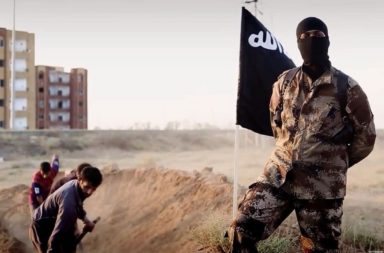ISIS has really taken a lot of major hits recently, but the latest is a crippling blow from which they may never recover.
-
Abu Omar ai-Shishani, aka Omar the Chechen is officially dead, according to Al Amaq, the ISIS news agency
-
A seasoned veteran of combat, Omar fought in Chechnya, for the Georgian military, and now for ISIS
-
Omar was a senior leader of ISIS, and a very important military commander
-
Conflicting reports claim he was killed in March, while ISIS claims he was killed this week
The tide is finally turning on ISIS. After years of fighting, with ISIS becoming more entrenched in Syria and Iraq, carrying out horrifying operations in Paris, Brussels, and Turkey, as well as their inspiration for attacks in Bangladesh, San Bernardino and Orlando, ISIS is being pushed back by coalition forces as well as by Iraqi forces. Fallujah has already been retaken, and the fight is now on to Mosul, where over time, the coalition is expected to win and push ISIS from Mosul by the end of 2016.
But a major victory was announced this week, as the ISIS news agency, Al Amaq confirmed that the ISIS Minister of War Omar the Chechen, a close adviser to leader Abu Bakr al-Baghdadi, has been killed. The United States had reportedly killed him in an air strike back in March, but there was no confirmation from ISIS on that. Abu Omar al-Shishani, grew up in the Caucausus, and was involved in military operations during the Chechen war, fighting against the Russian troops. He then joined the Georgian army, serving for four years including time with the special forces. “He was a perfect soldier from his first days, and everyone knew he was a star,” said a former comrade who remains unnamed. It was also known that his unit was trained by American soldiers, and he almost went to Iraq to fight alongside the American troops said a Georgian defense official.
Omar was arrested and sentenced to 15 months in prison for illegally harboring weapons, which was the mark of a decline in his relationship with the country of Georgia, and after completing his sentence, he fled to Syria, and began his career inside ISIS. He led the Muhajireen Brigade, which was a unit made entirely of foreign fighters, and he proved his skill in helping to capture Aleppo.
By 2013, he pledged allegiance to Abu Bakr al-Baghdadi, and was named as the commander of ISIS’ northern operations. He was a senior ISIS commander, and was moved higher on the list of Global Terrorists, and a reward for his capture was set at five million dollars.

Photo of Omar the Chechen
Wikipedia
There have been numerous reports of his death, first in 2014, three times in 2015, and once in March 2016. ISIS had never issued confirmation for any of these until they announced this week that Omar was dead. Al Amaq claimed that he died fighting in Shirqat, a city just south of Mosul.
The Pentagon has acknowledged the report, but has not confirmed anything. It is possible that he was killed in March, but the Islamic State withheld announcing his death until a successor is lined up, a theory proposed by Rami Abdelrahman, the head of the Syrian Observatory for Human Rights.
Regardless, it is still an important victory for the coalition forces, as Omar was for a time seen as a possible second-in-command, and is definitely in the upper echelons of ISIS’ leadership structure. It is a huge loss for ISIS, reminding the fighters that no one is immune to being targeted by the US strikes as leaders like Jihadi John and their Finance Minister Abu Ala al-Afri, and that The US is coming for them. As the battle for Mosul rages on, this will only serve to weaken the resolve of ISIS fighters, and losing Mosul could prove to be the fatal blow that breaks apart this devastating evil that has gripped the Middle East for years.





